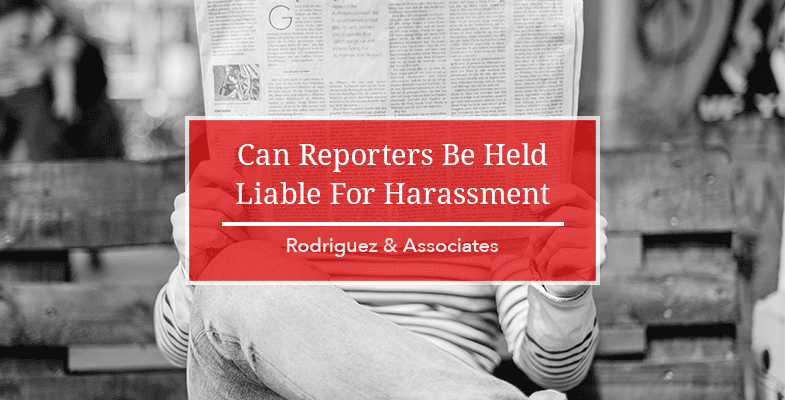The people have a right to know. The job of a journalist is to report need to know information to the public, but sometimes, the means by which journalists obtain their information can fall on decidedly muddy moral grounds. This is particularly evident here in California, where paparazzi make a living disguising and hiding themselves in order to sneak pictures of celebrities.
The First Amendment provides broad protections to members of the press, but if a person feels harassed by a reporter, what is the law?
Expectation of Privacy
The general rule here for all citizens is whether you have an expectation of privacy. It’s not expected that a celebrity or politician will have the same amount of privacy as other people, yet they still have rights meant to protect what privacy they have. It is allowed to film, photograph or record what is seen and heard in public places. This idea has recently been given much scrutiny regarding the filming of police, specifically in the event of police brutality, a right which has been upheld by the courts.
The area of privacy which has become most important is online. The information we store and share online can be stolen by someone with sinister purposes, from which it could take months to recover personally and financially. As of right now, the law states that we have a reasonable expectation of privacy online, but Internet Service Providers and some politicians are looking to change that line of thinking.
Can a Reporter Be Held Liable for Harassment Claims?
Where a journalist may see surveillance, their subject may see stalking. The consensus amongst reporters is that going undercover and obtaining a job at a farm in an effort to spotlight animal abuse is fine, but using long microphones or binoculars to spy on a celebrity in an effort to obtain juicy gossip is unethical. Er go, the effect the news has on the health and safety of others must be the greater goal.
Intrusive actions such as staking out the home, following them, or recording them in private places can be labeled as harassment. A reporter can absolutely be held liable for these claims, particularly in California where two anti-surveillance laws have been passed:
- Senate Bill 606 – Passed in 2013, this makes the penalty for harassing the children of a person purely because of that person’s status much more harsh. Jennifer Garner and Halle Berry testified in favor of this bill, which makes it a misdemeanor to alarm, annoy, torment or terrorize the child. The maximum punishment for a first offense is jail for one year and a fine of up to $10,000.
- Senate Bill 856 – Passed in 2015, this bill made it illegal to operate drones on or near private property. Doing so would make that person liable for invasion of privacy, and the liable person could be sued for their actions.
Even if these activities occur in public, the reporter could still be held liable for harassment claims if their actions are deemed overzealous, intrusive, or of a stalking nature.
